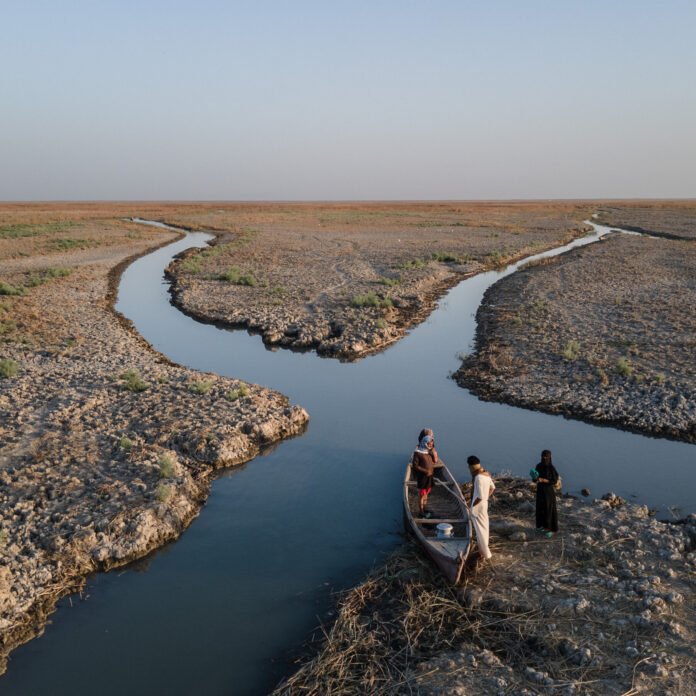Iraq faces a historic water emergency as the Euphrates river drops to record low levels. Experts warn that the Euphrates water crisis is worsening due to drought, climate change, and upstream dam restrictions.
The country’s 46 million residents are experiencing rising temperatures and chronic water shortages. Yearly droughts further strain Iraq’s fragile water supply. Southern regions suffer the most, where low river flow intensifies water pollution and allows algae to spread rapidly.
The Euphrates and Tigris, vital rivers that have irrigated Iraq for thousands of years, originate in Turkey. Iraqi authorities repeatedly blame Turkish dams for drastically reducing river flows. “In recent weeks, the Euphrates has reached its lowest water levels in decades,” said Hasan al-Khateeb, water expert at the University of Kufa.
Currently, Iraq receives less than 35 percent of its allocated share of the Euphrates and Tigris. To sustain the river, Iraq is releasing more water from its shrinking reservoirs than it receives. Officials warn that this approach may not be sustainable long-term.
Khaled Shamal from the water resources ministry explained that artificial lake reserves “are at their lowest in the history of the Iraqi state.” Water levels dropped from 10 billion cubic meters in May to less than eight billion, representing under eight percent of total capacity.
The reduced water flow is harming water quality and threatening the Euphrates ecosystem. Algae now spreads widely, depleting oxygen and endangering fish and other aquatic life. The environment ministry reports increased bacterial pollution and large algae zones in Karbala province. Nearby Najaf province also faces very poor water quality.
In Lake Najaf, photographers documented stagnant pools replacing the once-lush lake. In Nasiriyah, water hyacinths bloom across the Euphrates, flourishing due to low flow. These invasive plants absorb up to five liters of water each day and block sunlight and oxygen, further damaging aquatic life.
Despite the crisis, the environment ministry assures that water purification meets strict standards. For now, water quality remains “acceptable” and safe for use in cities across southern and central Iraq.
The Euphrates water crisis highlights Iraq’s urgent need for sustainable water management. Experts stress that without decisive action, the country could face even greater shortages and ecological damage in the coming years.


